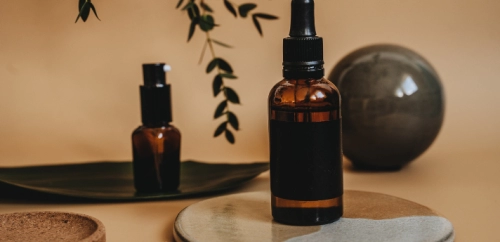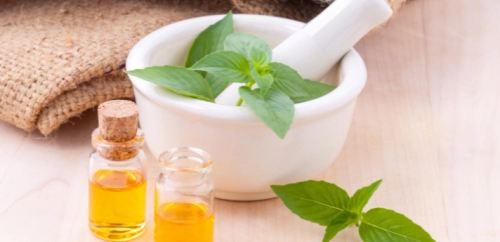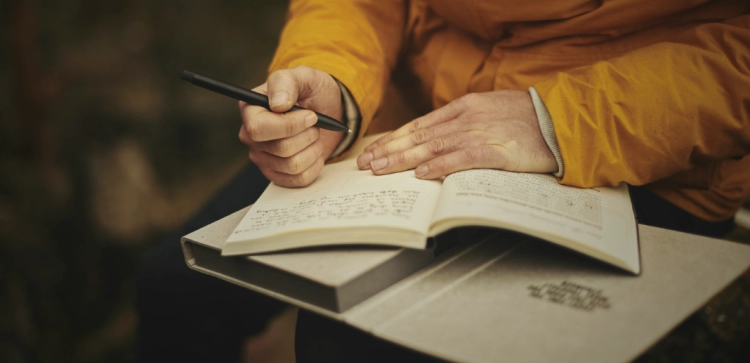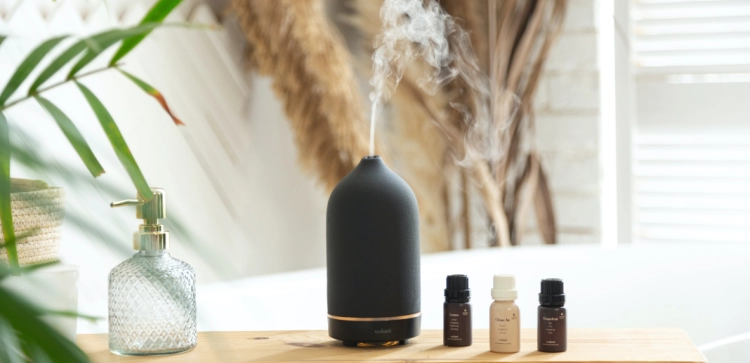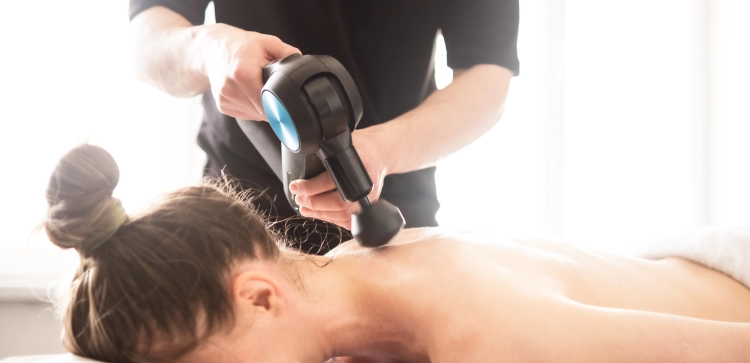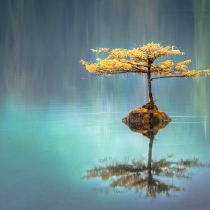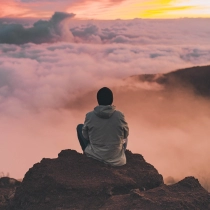How Do You Make Homemade Essential Oils?

Essential oils can be a great way to create a tranquil environment and handle many different health issues - both physical and mental. They have become very popular over the past several decades, and there is a wide range of options available for you to buy pre-made oils. But if you're looking to save a little money, you might be considering making your own. But how do you make homemade essential oils?
Homemade essential oils can be made by first choosing the oil combinations for the final product, and then mixing those ingredients and water into a crockpot, a stovetop, or an oil infusion, and letting the mixture cook for 24 - 36 hours. Let the mixture sit for a few days. The oil will rise to the surface, ready to be collected and used as your essential oil.
The process is actually not that difficult. It may be a little time-consuming, but in the end, you'll be able to craft your own essential oils that can address your particular preferences and needs.
But we're sure that you may not even have an idea of where to start when it comes to making your own homemade essential oils. So, below we're going to take a look at why you should create your own essential oils and the processes that go along with them.
Benefits of Essential Oils
Essential oils are powerful because they not only affect our cognitive functions but also our physiological ones as well. There are certain chemicals in herbs that, when released into the air, will interact with our brain chemistry, causing that magnificent organ to release neurotransmitters that change our mood and affect the way our bodies function.
Along with that, there's also a psychological effect as many of these fragrances will trigger memories that in turn will elevate our moods. Here are some of the biggest benefits you get by utilizing essential oils in your home or your holistic healing practices:
- Smell Good - Essential oils can be used in other ways other than just by diffusing them into the air. Some of them can be used in baths as well as topically. But no matter for what purposes, these homemade essential oils you are looking to craft will smell good. Along with this, when you create your own homemade essential oils, you can craft scents that are specifically tied to your preferences and needs.
- Purification - Purification can be both a physical thing as well as a spiritual thing. On a physical level, essential oils are created to purify the air of any odors that you may not want present in your home. On a spiritual level, you can choose to use aromatherapy to remove negative energies from a space, and this can be easily done by crafting specifically blended essential oils that answer your spiritual needs.
- Wellness - As we said above, essential oils have an impact on both your mental and physical bodies as well as your emotional wellbeing. These fragrances which are released via essential oils, can help with things like sleep and relaxation, as well as calming your mind and creating more focus. Homemade essential oils can be fine-tuned to do multiple tasks.
- Safety - Using essential oils to make your home more comfortable or help relieve some of your inner stress can also be a safety benefit. With candles, they have to burn for a long time, which could potentially cause some risk of fires. Along with this, candles and air fresheners typically use chemicals and synthetic fragrances, whereas essential oils are more holistic and won't release any harmful toxins into the air.
How to Make Your Own Homemade Essential Oils
When we talk about how you can make your own homemade essential oils, there are a couple of different steps. There is the physical aspect of the process which we will discuss below. But there is also the preparation.
Why are you creating your own homemade essential oil? What are you putting into it? And what profile are you looking for are all questions you have to answer before you can even get to the physical process of making your own homemade essential oils.
So here is an outline of the process that goes into the actual creation of the essential oils you're looking to make yourself:
Intent
Your process of creating your own homemade essential oils or essential oil blends has to start with what you are looking for this oil to do.
Understanding the purpose behind your creation will help you narrow down what herbs, flowers, and/or spices you will use in your essential oil. For instance, if you're looking to create a relaxing blend, you might not want to put cinnamon or even a citrus scent in, as these are usually used to activate energy and elevate focus.
Use
The next part of the process is to look at how you're intending to utilize this essential oil. Are you going to use it in a diffuser? Are you going to use it in a bath? Or maybe you're opting to use it as a room spray. Each of these will have a different effect on the components within your essential oil. As an example, if you're looking to use it as a topical application, you might not want to use citrus oils as they can create photosensitivity in the person utilizing it.
Chemistry
After this, you're going to dive into the chemistry of the components you're considering using. You have to understand what makes up that ingredient. This step is part of the process of determining the final blend or components, as once again, the intent is important. Understanding things such as, for example, lavender contains a chemical that is very well known for calming, will help you in the process of determining how to create your homemade essential oil and which ingredients to use.
Profile
The last thing you're going to consider is your aroma profile. Some people love certain smells and hate others, and vice versa. So you have to make sure that the essential oil you're making will be enjoyed by you and your nose.
Ways To Make Your Homemade Essential Oils
Alright, so at this point, you have your essential oil ready, and all that's left is the actual creation. Though many commercial essential oils are created using a still, you don't necessarily have to have the huge contraption to get the job done. In fact, we guarantee you have at least one of the three options below in your kitchen right now.
- Crockpot - Utilizing a crockpot, you'll want to place a handful of the ingredients in the bottom of the pot and then cover with distilled water until you're about an inch from the top. Cook these ingredients on low for up to 36 hours and then shut it off and let cool. Strain out the ingredients, and then let sit for a week. Oil will collect at the top, and you can remove it and utilize it as your essential oil.
- Stove Top - The process for using the stove is the same as in the crockpot. Except for you will want to let the water with the ingredients simmer for 24 hours and then add water if needed. Once again, when it is cooled, the oil will come to the top, and you can remove and use it as needed.
- Oil Infusion - By utilizing this method, you will be able to get a nice and very fragrant result. When it comes to oils, you might want to choose between olive, jojoba, safflower, almond, or canola oil. Then you will take the ingredients and in several stages steep a small amount in the oil overnight. This process typically takes about two to three days to create the oil. Make sure you use a glass container that has a tight seal so that you can preserve it.
Final Thoughts
Essential oils can be a vital part of your holistic healing journey. Not only does it make your home smell sweet and wonderful, but it can help relieve stress and purify your home of negative energies.
Having complete control of the ingredients that go into it can also give some peace of mind, as many commercial essential oils tend to use chemicals and other things to help them last longer. By taking your health into your own hands by creating your own homemade essential oils, we are sure that you will be able to live a happier and healthier life.

